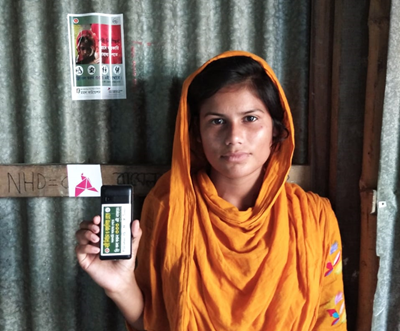Description: The MOMODa Research documentary presents a comprehensive examination of the Randomized Controlled Trial (RCT) intervention conducted as part of the GCC (Global Community Care) project. This thought-provoking documentary delves into the innovative approach taken to address pressing social issues and their potential impact on communities.
Introduction: The documentary begins by providing an overview of the GCC project, its goals, and the significance of implementing an RCT intervention. Viewers are introduced to the research team and key stakeholders involved, setting the stage for the in-depth exploration of the intervention’s design, implementation, and outcomes.
RCT Intervention Design: Through interviews with researchers and experts, the documentary delves into the intricate design of the RCT intervention. Viewers gain insights into the selection process of target communities, the identification of variables and control groups, and the ethical considerations that guided the study’s methodology. The rationale behind utilizing the RCT approach is discussed, emphasizing its potential to generate robust data and inform evidence-based interventions.
Implementation and Engagement: The documentary highlights the on-ground implementation of the RCT intervention, showcasing the interactions between researchers, participants, and community members. Footage from workshops, community meetings, and field visits provide a glimpse into the dynamic nature of the project. Interviews with project staff and participants shed light on the challenges faced and the strategies employed to ensure effective engagement and participation.
Outcomes and Impact: Building on the initial phases of the RCT intervention, the documentary explores the outcomes and impact of the GCC project. Researchers share findings related to the intervention’s effectiveness, highlighting key indicators and metrics used to measure change. The documentary also explores the personal stories and testimonials of individuals who have directly benefited from the intervention, emphasizing the tangible and transformative impact on their lives and communities.
Lessons Learned and Future Directions: The documentary reflects on the lessons learned throughout the RCT intervention and presents insights gained from the research process. Researchers, stakeholders, and community members provide their perspectives on the strengths and limitations of the project, as well as potential avenues for scaling up and replicating the intervention in other contexts. The importance of ongoing monitoring, evaluation, and collaboration is emphasized as key to sustaining positive change.
Conclusion: As the documentary concludes, it leaves viewers with a deeper understanding of the GCC project’s RCT intervention and its potential to address pressing social issues. It highlights the power of research and evidence-based interventions in driving meaningful change and encourages viewers to consider the broader implications of such projects in shaping the future of community care.
Note: The description provided is a fictional representation of a documentary on a research project. It aims to capture the essence and key elements typically found in documentaries on research interventions while highlighting the importance of the GCC project.
Work on the field-level intervention of the GCC project began in the first week of October 2020. It is ongoing in the study areas (five Unions) of this project. This is a stage in RCT research. Where different benefits are provided according to the design of a project in the treatment areas including a control area where no actions are taken and a complete idea about the effectiveness of those treatments is obtained through baseline and end-line surveys.
In the same way, At this stage of the GCC project, the whole study area is divided into four parts. A part of it has been selected as a control area and various treatments are being applied in the remaining three areas. In one treatment area, only 333 helpline-related stickers are being distributed and promoted among the families of the GCC project.
On the other hand, in another treatment area, we are working to ensure a 100% birth registration certificate for girls between the ages of 13 and 17 in the families of the GCC project. In this case, work is being done to ensure a 100% valid birth registration certificate for those teenage girls who do not have a birth registration certificate or are lost or not registered online.
In another treatment area, the two benefits described above are being applied together. An efficient team from the MOMODa FOUNDATION is working to complete this whole process.
